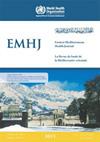Fertility preferences of Turkish married women during the COVID-19 pandemic
IF 1.7
4区 医学
Q3 HEALTH CARE SCIENCES & SERVICES
引用次数: 0
Abstract
Background: The COVID-19 pandemic had serious impact on the social, economic, psychological, and physical aspects of a large segment of the society, including women who were married or in stable relationships. Aim: To evaluate changes in the desire to become mothers among married women in Türkiye during the COVID-19 pandemic. Methods: This cross-sectional study used data from a self-administered questionnaire that examined the demographics and fertility preferences of 520 married Turkish women. We used the Fear of COVID-19 Scale (FCV-19S), Patient Health Questionnaire (PHQ-9) and Generalized Anxiety Disorder-7 (GAD-7) to measure fear, depression and anxiety related to COVID-19. We evaluated fertility preferences before and during the COVID-19 pandemic. Data analysis was conducted using SPSS version 11.5. Results: Fifty of 112 study participants who planned to get pregnant halted their plans because of the pandemic. In contrast, 21 of 408 study participants who did not plan a pregnancy decided to get pregnant during the pandemic to enhance their positive disposition and overcome loneliness, and because of the increased leisure time and intimacy with their spouses. Mean scores (standard deviation) for all participants for PHQ-9, GAD-7, and FCV-19S were 7.4 (6.02), 4.93 (4.84), and 17.28 (6.16), respectively. Conclusion: This study highlights the negative impact of the COVID-19 pandemic on women’s fertility preferences in Türkiye due to uncertainty and anxiety. To confirm the results of this study, more research is needed to examine the longer-term impact and among a larger population.COVID-19 大流行期间土耳其已婚妇女的生育偏好
背景:COVID-19 大流行对社会中很大一部分人的社会、经济、心理和生理产生了严重影响,其中包括已婚或关系稳定的女性。目的:评估 COVID-19 大流行期间土耳其已婚妇女成为母亲的愿望的变化。研究方法这项横断面研究使用了一份自填式问卷中的数据,该问卷调查了 520 名土耳其已婚妇女的人口统计学特征和生育偏好。我们使用 COVID-19 恐惧量表(FCV-19S)、患者健康问卷(PHQ-9)和广泛性焦虑症-7(GAD-7)来测量与 COVID-19 相关的恐惧、抑郁和焦虑。我们对 COVID-19 流行之前和期间的生育偏好进行了评估。数据分析采用 SPSS 11.5 版进行。结果在 112 名计划怀孕的研究参与者中,有 50 人因疫情而停止了怀孕计划。相比之下,在 408 名没有怀孕计划的研究参与者中,有 21 人决定在大流行期间怀孕,以增强他们的积极性格和克服孤独感,同时也因为休闲时间和与配偶的亲密关系增加了。所有参与者的 PHQ-9、GAD-7 和 FCV-19S 平均得分(标准差)分别为 7.4 (6.02)、4.93 (4.84) 和 17.28 (6.16)。结论本研究强调了 COVID-19 大流行对土耳其妇女生育偏好的负面影响,其原因在于不确定性和焦虑。为了证实本研究的结果,还需要进行更多的研究,以便在更多的人群中研究其长期影响。
本文章由计算机程序翻译,如有差异,请以英文原文为准。
求助全文
约1分钟内获得全文
求助全文
来源期刊

Eastern Mediterranean Health Journal
HEALTH CARE SCIENCES & SERVICESPUBLIC, ENV-PUBLIC, ENVIRONMENTAL & OCCUPATIONAL HEALTH
CiteScore
3.30
自引率
4.80%
发文量
112
期刊介绍:
The Eastern Mediterranean Health Journal, established in 1995, is the flagship health periodical of the World Health Organization Regional Office for the Eastern Mediterranean.
The mission of the Journal is to contribute to improving health in the Eastern Mediterranean Region by publishing and publicising quality health research and information with emphasis on public health and the strategic health priorities of the Region. It aims to: further public health knowledge, policy, practice and education; support health policy-makers, researchers and practitioners; and enable health professionals to remain informed of developments in public health.
The EMHJ:
-publishes original peer-reviewed research and reviews in all areas of public health of relevance to the Eastern Mediterranean Region
-encourages, in particular, research related to the regional health priorities, namely: health systems strengthening; emergency preparedness and response; communicable diseases; noncommunicable diseases and mental health; reproductive, maternal, child health and nutrition
-provides up-to-date information on public health developments with special reference to the Region.
The Journal addresses all members of the health profession, health educational institutes, as well as governmental and nongovernmental organizations in the area of public health within and outside the Region.
 求助内容:
求助内容: 应助结果提醒方式:
应助结果提醒方式:


